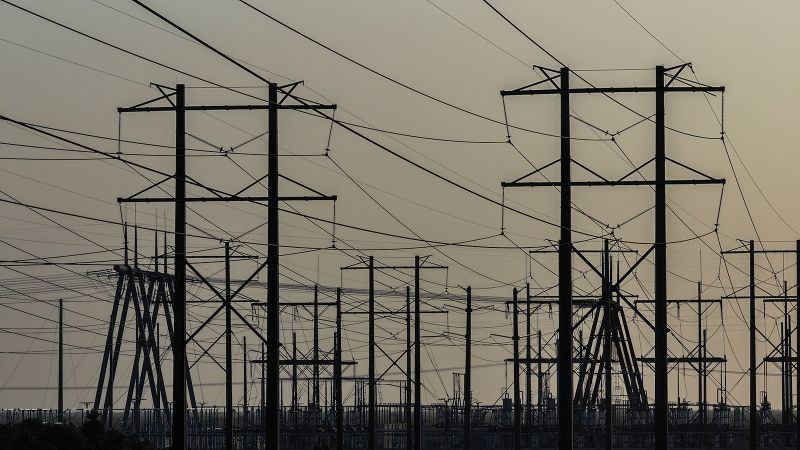Hospitals, water dams, and power plants across the United States are bracing for potential Iranian cyberattacks, following recent US airstrikes on Iran’s nuclear sites. The strikes, which took place over the weekend, have heightened tensions, prompting a state of increased vigilance across critical infrastructure sectors.
The United States launched a decisive military action on Saturday, targeting three nuclear sites within Iran. In the aftermath, the US power grid’s cyberthreat-sharing center has been actively monitoring the dark web for signs of Iranian cyber activity. Hospital executives have also been in close communication with the FBI to assess potential threats, according to sources familiar with these discussions.
Cyber Retaliation: A More Likely Response
Experts suggest that Iran may find it easier to retaliate in cyberspace rather than through direct military confrontation. Tehran-linked hackers have a history of targeting American hospitals and water facilities, underscoring the persistent threat they pose.
“Iran’s kinetic retaliation is already in motion, and the digital dimension to that may not be far behind,” stated Adam Meyers, a senior vice president at cybersecurity firm CrowdStrike. His comments came shortly after Iran fired missiles towards a US military base in Qatar, in response to the US strikes. “This cyber element is what lets them extend their reach and there’s an air of deniability to it,” Meyers added.
“If it’s there, and vulnerable, they have a higher likelihood of targeting it,” a US official monitoring potential Iranian hacking threats to critical infrastructure noted.
Historical Context and Recent Developments
The current situation echoes past incidents where Iranian hackers have exploited vulnerabilities in US critical infrastructure. Following the Israel-Gaza conflict in the fall of 2023, multiple cyberattacks on US water facilities were attributed to Iran’s Islamic Revolutionary Guard Corps. In one notable case, hackers breached a water plant outside Pittsburgh, forcing manual operation of a pump station and leaving an anti-Israel message on a breached monitor.
Meanwhile, the Department of Homeland Security (DHS) has been issuing warnings about the long-standing cyber threat from Iran. A recent DHS bulletin cautioned that Tehran could target American government officials if they perceive a threat to their regime’s stability or survival.
Current Threat Landscape and US Preparedness
Despite the heightened alert, there have been no confirmed new breaches of US organizations by Iranian hackers. However, hackers linked to Iran have reportedly been scanning the internet for vulnerable software, openly discussing retaliation against US targets.
In response, the Cybersecurity and Infrastructure Security Agency (CISA) is actively coordinating with government, industry, and international partners to share intelligence and bolster defenses. “There are currently no specific credible threats against the homeland,” stated CISA spokesperson Marci McCarthy.
US officials and corporate executives continue to closely monitor Iranian-linked hacker groups and “hacktivist” personas. These groups often exaggerate their successes to gain a psychological advantage over their targets.
“Low-level cyber attacks against US networks by pro-Iranian hacktivists are likely,” DHS noted in a public advisory. “Cyber actors affiliated with the Iranian government may conduct attacks against US networks.”
Expert Opinions and Future Implications
Anne Neuberger, former deputy national security adviser for cyber and emerging technology, emphasized the dual nature of Iranian cyberattacks as both attention-seeking and impactful. Some cybersecurity executives are advocating for vigilance without over-hyping the threat, aiming to counteract the psychological tactics employed by Iranian hackers.
“We understand from direct communications with the federal government that heightened vigilance and reporting is warranted for both cyber and physical threats,” said John Riggi, a former FBI official now advising the American Hospital Association on cybersecurity and risk.
While Iran’s cyber capabilities may not match those of China or Russia, their unpredictability remains a concern. The FBI has previously attributed cyberattacks on Boston Children’s Hospital and threats against US election officials to Tehran.
“Iran’s growing expertise and willingness to conduct aggressive cyber operations make it a major threat to the security of U.S. networks and data,” stated the Office of the Director of National Intelligence in its March threat assessment.
As the situation continues to evolve, the US remains on high alert, balancing the need for preparedness with the risk of escalating tensions further. The international community watches closely, aware that the digital battlefield is as significant as any physical confrontation.
